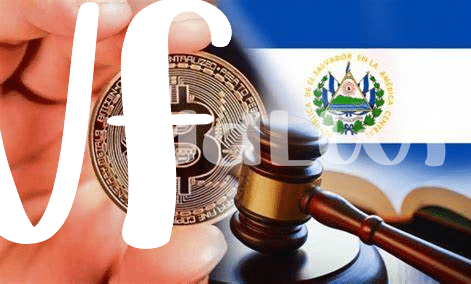🌍 What Is Bitcoin? a Quick Global Currency Overview

Imagine a world where you can carry your money in your pocket, not as paper or coins, but digitally. This is where Bitcoin steps in – a kind of money that exists solely online. It was created in 2009, thinking of it as an innovative treasure that lets you buy things or exchange it for other currencies without using traditional banks. Sounds like something from a sci-fi movie, right? What makes it unique is that it operates on a technology called blockchain, a kind of digital ledger that is incredibly secure and transparent. But, unlike the dollar or euro, it’s not tied to any country or regulated by a central authority. This freedom comes with a thrilling but unpredictable journey of ups and downs in its value. Here’s a quick glimpse at how Bitcoin stacks up in numbers:
| Year | Bitcoin Value |
|---|---|
| 2009 | Practically Worthless |
| 2010 | $0.08 |
| 2021 | $64,000 (peak) |
Through this table, we can see Bitcoin’s journey from being virtually worthless to achieving astonishing heights. Yet, its fluctuating nature keeps everyone guessing what’s next, making it a curious case of digital currency.
💸 the Ups and Downs: Bitcoin’s Price Rollercoaster
Imagine hopping on a rollercoaster, blindfolded, not knowing if you’re going to climb to breathtaking heights or drop into sudden dips. That’s a bit like what it’s like watching Bitcoin’s price change. Starting as just an idea in 2009, Bitcoin has had moments where it shot up in value, making people feel like overnight millionaires, and times when it fell sharply, causing a stir of worries and doubts. Just like a rollercoaster, these ups and downs can be thrilling or nerve-wracking, depending on who you ask. This ride isn’t just driven by people buying in hopes of getting rich. It’s influenced by lots of factors, like big companies saying they’ll accept Bitcoin, changes in regulations, or even tweets from famous billionaires. For those curious about this journey and its impact on the world, https://wikicrypto.news/from-satoshi-to-society-the-philanthropic-power-of-bitcoin dives deeper, exploring how Bitcoin climbed its way from an unknown digital currency to a topic of global discussion.
🏦 Central Banks Vs. Bitcoin: Stability Standoff

Imagine a playground see-saw, with traditional central banks on one side, all steady and serious, and Bitcoin on the other, the new kid that’s a bit unpredictable. Central banks, run by countries, like things stable and predictable. They adjust things like interest rates to keep their currency’s value just right, not too high or low. Now, enter Bitcoin. It’s different because it doesn’t have a central place or person in charge. Its value can jump high or dip low quickly, thrilling for some, but nervy for others. This clash – a stability standoff – is really about the old guard meeting the new tech on the block. Each has its perks. Central banks offer a familiar steadiness, while Bitcoin brings excitement with its flexibility and potential for quick gains. The question is, can a country’s financial health handle the rollercoaster ride with Bitcoin, or is the slow and steady approach of central banks the way to go? This tussle isn’t just about money; it’s a sign of how we might handle and trust currencies in our increasingly digital world.
🌐 Internet Access: the Key to Bitcoin Currency Adoption

Imagine trying to buy something online, but it’s like there’s no store in your town. That’s a bit what using Bitcoin can feel like if your internet is spotty or non-existent. For Bitcoin to really take off as a currency folks use every day, it boils down to having the internet not just at your fingertips, but fast and reliable too. Think about it: every transaction, every check on your Bitcoin wallet, needs the internet. It’s like the air Bitcoin breathes. Countries pondering over making Bitcoin their buddy are staring at their internet maps, figuring out how to get everyone online. Without good internet, Bitcoin’s journey from an online curiosity to the money in your digital pocket hits a big roadblock. If you’re biting your nails over how this plays out or how different spots around the globe are wrapping their heads around it, dive into bitcoin adoption rates suggestions. It’s a treasure trove of what’s what and who’s who in the Bitcoin playground, shedding light on the path to making Bitcoin more than just geek gold.
📈 Analyzing Countries Experimenting with Bitcoin
Around the world, a few daring nations are dipping their toes into the Bitcoin pool, testing the waters to see if it can swim as their currency. For instance, El Salvador made headlines by becoming the first country to officially adopt Bitcoin as legal tender. This bold move aimed to boost its economy by attracting crypto investors and making remittances cheaper and faster for its people abroad. Meanwhile, other countries, observing cautiously from the sidelines, are launching pilot projects or creating legal frameworks to potentially integrate Bitcoin into their financial systems. The results vary, with some experiencing technological and economic hurdles, while others report increased financial inclusion among their population. This global experiment is still in its early days, and each country’s story adds a unique chapter to the evolving narrative of Bitcoin’s place in the world’s financial ecosystem.
| Country | Initiative | Outcome |
|---|---|---|
| El Salvador | Adoption as legal tender | Increased remittances, crypto investments |
| Country X | Pilot project | Technological hurdles encountered |
🔍 Future Scenarios: Will Any Country Fully Embrace Bitcoin?

Peering into the crystal ball to see if any country will wrap its arms fully around Bitcoin takes us on a journey of imagination and practicality. Bitcoin, with its digital flair, promises a future where transactions glide across borders with ease. However, adopting it as a national currency? That’s a steep mountain to climb. Countries tiptoeing around the idea are treading cautiously, intrigued by the freedom it offers from traditional financial systems yet wary of its wild value swings. The real game-changer could be how Bitcoin evolves, especially in terms of stability and security. Imagine a world where Bitcoin’s rollercoaster ride smooths out, becoming less of a daredevil’s choice and more of a reliable financial vehicle. For insights into making Bitcoin a safer bet, dive into bitcoin philanthropic initiatives explained for top-notch bitcoin security practices suggestions.
As we cast our eyes to the horizon, the weave of internet access and financial literacy becomes crucial. Countries with widespread tech-savvy populations could lead the charge, turning Bitcoin from a digital curiosity into a mainstream marvel. Skeptics abound, pondering the feasibility of a society where Bitcoin reigns supreme. Yet, the allure of a decentralized, borderless currency continues to spark debates far and wide. Whether or not a nation will fully embrace Bitcoin hinges on a myriad of factors, including technological advancements, regulatory frameworks, and a collective leap of faith towards a digitized economic future. Only time will reveal Bitcoin’s destiny on the world stage, but the prospect itself is a thrilling narrative of innovation and daring dreams.
